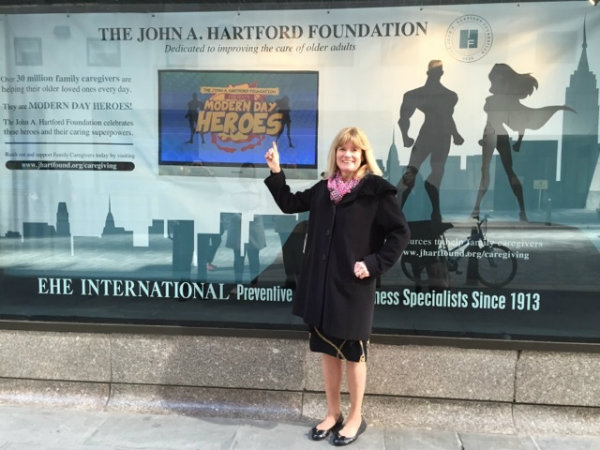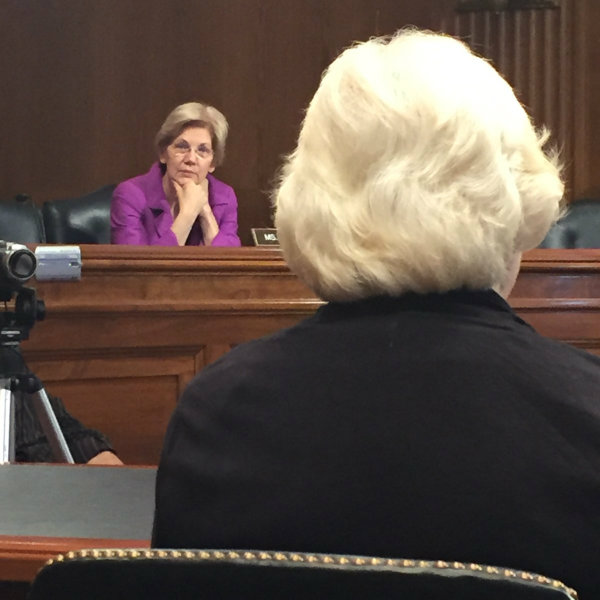Auld blog posts, like auld acquaintances, deserve a better fate than to “be forgot, and never brought to mind.”
So in the spirit of Auld Lang Syne, we would like to take this opportunity to wish you all a healthy and happy new year in 2017! We also would like to take a moment to revisit some of the highlights from our Health AGEnda blog from 2016 and raise a cup of kindness to the achievements they record.
We especially wish to bring to mind the progress The John A. Hartford Foundation has made with its partners and grantees over the past year in the three priority areas that will continue to guide our grantmaking in the new year and beyond. We hope this recap of the year provides inspiration for all of us as we work together to improve the care of older adults.
Priority Area: Age-Friendly Health Systems
 One of the biggest highlights of the year for us was the development of our Age-Friendly Health Systems priority area. In November, President Terry Fulmer, PhD, RN, FAAN, and Senior Program Officer Amy Berman co-wrote a blog post titled Age-Friendly Health Systems: How Do We Get There? for Health Affairs, the nation’s leading health policy journal. The piece outlined the Foundation’s bold new vision to create a prototype of evidence-based, age-friendly care and spread it across entire health systems.
One of the biggest highlights of the year for us was the development of our Age-Friendly Health Systems priority area. In November, President Terry Fulmer, PhD, RN, FAAN, and Senior Program Officer Amy Berman co-wrote a blog post titled Age-Friendly Health Systems: How Do We Get There? for Health Affairs, the nation’s leading health policy journal. The piece outlined the Foundation’s bold new vision to create a prototype of evidence-based, age-friendly care and spread it across entire health systems.
An important step toward making that vision a reality was taken in December, when the Board of Trustees approved a $3.19 million grant to launch the new Age-Friendly Health Systems Initiative, a partnership with the Institute for Healthcare Improvement, the American Hospital Association, and four health care systems. This signature initiative, and other grants within the priority area, hold tremendous promise for wide-spread transformation in health care delivery.
Of course, the presidential election was one of the most significant events of 2016 for the country and as the elections approached, Dr. Fulmer was one of 100 renowned scholars, scientists, and policymakers from across the country chosen by the National Academy of Medicine to help guide the next administration. On Health AGEnda, Dr. Fulmer explained the Vital Directions in Health Care initiative, and shared the two papers she co-authored, one focused specifically on the topic of preparing health care for an aging population and the other on the need for better care of older adults and others who have complex medical and social needs.
In service of these patients who have complex needs, the Foundation also spent the year deeply involved in an exciting partnership with four other funders who share a concern for this high-need, high-cost population. Together, we developed a new online resource—The Playbook: Better Care for People with Complex Needs—that will help advance age-friendly care by curating information and resources on promising approaches to caring for people with complex conditions.
Priority Area: Family Caregiving
 The year was also marked by the much anticipated Families Caring for an Aging America report, released by the prestigious National Academies of Sciences, Engineering, and Medicine (NASEM) in September. The Foundation provided lead funding for the landmark report and Dr. Fulmer made a powerful case for all stakeholders to join together in advancing the report’s key recommendations.
The year was also marked by the much anticipated Families Caring for an Aging America report, released by the prestigious National Academies of Sciences, Engineering, and Medicine (NASEM) in September. The Foundation provided lead funding for the landmark report and Dr. Fulmer made a powerful case for all stakeholders to join together in advancing the report’s key recommendations.
Many of those stakeholders gathered together in December at an AARP Solutions Forum on the NASEM report. Program Director Rani Snyder, who joined the Foundation earlier in 2016, shared some of the big, bold ideas discussed at the forum about how to elevate the role of family caregivers in our health care system.
Senior Program Officer Marcus Escobedo shared information on the impact that the Caregiver Advise, Record, Enable (CARE) Act—model legislation developed and spread by AARP—is having on states across the nation. And throughout the month of March, the Foundation celebrated family caregivers through a multimedia window display at New York City’s bustling Rockefeller Center that highlighted both the scope of this important issue, as well as the caring superpowers—like empathy, gratitude, and creativity—that caregivers exhibit year-round.
Priority Area: Serious Illness & End of Life
 Adding to the knowledge base regarding Serious Illness and End of Life, the Foundation collaborated with the California Health Care Foundation and Cambia Health Foundation to commission a national survey of physicians on advance care planning and a follow-up series of focus groups involving clinicians and consumers. The Conversation Stoppers survey and Conversation Starters focus groups provided a valuable contribution to both the barriers and facilitators of these important conversations about the care one would want at the end of life or during serious illness.
Adding to the knowledge base regarding Serious Illness and End of Life, the Foundation collaborated with the California Health Care Foundation and Cambia Health Foundation to commission a national survey of physicians on advance care planning and a follow-up series of focus groups involving clinicians and consumers. The Conversation Stoppers survey and Conversation Starters focus groups provided a valuable contribution to both the barriers and facilitators of these important conversations about the care one would want at the end of life or during serious illness.
The Foundation also supported the NASEM Roundtable on Quality Care for People with Serious Illnesses, and Program Director Rani Snyder reported on the inaugural meeting. Stay tuned for reports from subsequent roundtable events.
In July, Amy Berman, our amazing senior program officer who was diagnosed five-and-a-half years ago with stage IV inflammatory breast cancer, testified before the U.S. Senate Special Committee on Aging in Washington, DC. She shared both her personal story and her deep expertise, along with Dr. Atul Gawande of Being Mortal fame and Dr. Kate Lally, an extraordinary palliative care physician. Her account, complete testimony, and video of Amy’s appearance are all on Health AGEnda.
Advocating for Older Adults
 Throughout the year, Dr. Fulmer represented the Foundation as a passionate advocate for older adults on a range of key issues. She called the eradication of ageism “a moral imperative” on the United Nation’s International Day of Older Persons 2016. She shared the Foundation’s support for the work of the Reframing Aging Initiative, which seeks to counter the pervasive negative beliefs about aging that stand as barriers to improving the care of older adults.
Throughout the year, Dr. Fulmer represented the Foundation as a passionate advocate for older adults on a range of key issues. She called the eradication of ageism “a moral imperative” on the United Nation’s International Day of Older Persons 2016. She shared the Foundation’s support for the work of the Reframing Aging Initiative, which seeks to counter the pervasive negative beliefs about aging that stand as barriers to improving the care of older adults.
In the summer, as catastrophic flooding, raging wildfires, and the Zika virus plagued the nation, Dr. Fulmer wrote that these and other emergencies should serve as a reminder of the often outsized effects they have on older adults and the extra preparations needed for the safety of our aging population.Dr. Fulmer, who has made elder mistreatment a priority in her research and practice, marked World Elder Abuse Awareness Day by calling on all to join a global chorus calling for more awareness and action to end all forms of elder mistreatment.
And on Veterans Day in November, Senior Program Officer Nora OBrien-Suric reminded readers of the sacrifices made by the brave men and women who have served in the military, and wrote about the long partnership between the Foundation and the Veterans Health Administration, which cares for almost 10 million veterans over age 65.
Best Wishes for a Happy and Healthy New Year
These are just a few of the many posts published on Health AGEnda this year that addressed significant issues affecting older adults and the work the Foundation, its partners, and grantees are doing to address them. To all who contributed their talents, and all who took the time to read and comment, we express our heartfelt thanks. As we prepare to greet 2017, we look forward to sharing more good news, important information, and insightful perspectives about improving the care of older adults on Health AGEnda.

